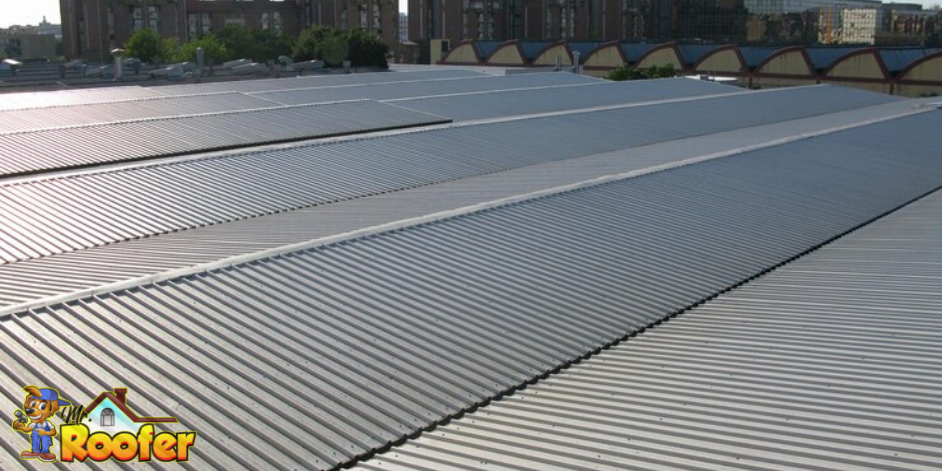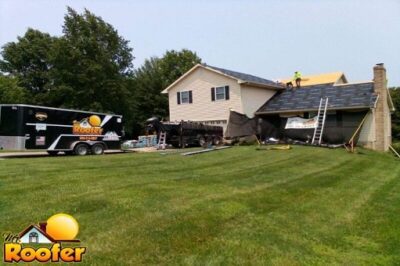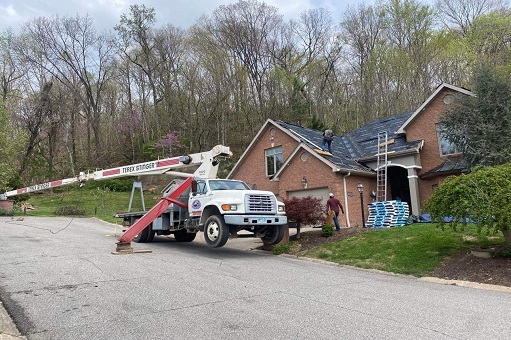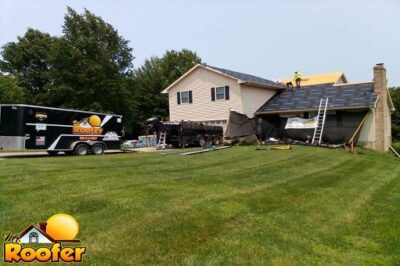Your industrial roof is a vital asset to your business, and maximizing its performance is essential to ensure the safety of your employees and the longevity of your building. However, with so many variables involved in industrial roofing, it can be overwhelming to know where to start.
That’s why we’ve gathered expert insights from top industrial roofing contractors to help guide you through the process.
From identifying common problems and selecting the right materials to enhancing energy efficiency and choosing the right contractor, we’ve got you covered. So, let’s dive in and discover how to keep your industrial roof in top shape!
What is Industrial Roofing?
Industrial roofing refers to the process of installing, maintaining, and repairing roofs on commercial or industrial buildings. These roofs are typically larger in size and more complex than residential roofs, and may be made from a variety of materials, including metal, asphalt, concrete, and PVC.
Industrial roofing requires specialized knowledge and skills, as well as adherence to safety regulations and industry standards.
The goal of industrial roofing is to provide a durable, weather-resistant, and energy-efficient roof that can withstand the harsh conditions of industrial environments and protect the building and its occupants.
Identifying Common Industrial Roofing Problems and Solutions
Industrial roofing systems are designed to withstand harsh environmental conditions and protect buildings from damage. However, over time, wear and tear, weather events, and other factors can cause common roofing problems to occur.
Here are some of the most common industrial roofing problems and their solutions:
- Leaks are a common problem in industrial roofing systems and can be caused by various factors, including poor installation, aging roofing materials, and storm damage. Solutions may include identifying the source of the leak, repairing or replacing damaged materials, and improving ventilation to prevent moisture buildup.
- Ponding water is a problem that occurs when water accumulates on the roof, causing damage and reducing the lifespan of the roofing system. Solutions may include improving drainage, adding slope to the roof, or installing a new roofing system that is better suited to handle water.
- Shrinkage and cracking are common problems that occur with age and exposure to the elements. Solutions may include repairing or replacing damaged materials, adding reinforcement to the roof structure, or installing a new roofing system.
- Strong winds can damage industrial roofing systems, causing tears, punctures, and other damage. Solutions may include repairing or replacing damaged materials, adding reinforcement to the roof structure, or installing a new roofing system that is better suited to handle wind.
- Poor installation is a common problem that can lead to a variety of issues with industrial roofing systems. Solutions may include hiring a qualified and experienced contractor to install or repair the roof, improving quality control measures, and using high-quality materials
Selecting the Right Roofing Materials for Industrial Buildings
Selecting the right roofing materials for industrial buildings is a critical decision that affects the performance and longevity of the roof. There are many factors to consider when choosing roofing materials, including the building’s location, weather patterns, energy efficiency needs, and budget.
Here are some of the most common roofing materials used in industrial buildings, along with their benefits and drawbacks:
Metal roofing
Metal roofing is durable, long-lasting, and low-maintenance. It is also energy-efficient and fire-resistant. However, it can be noisy during heavy rain and may require insulation to control temperature fluctuations
Asphalt roofing
Asphalt roofing is a popular and cost-effective option that is easy to install and maintain. However, it has a shorter lifespan than other materials and is not as energy-efficient.
PVC roofing
PVC roofing is lightweight, highly reflective, and energy-efficient. It is also fire-resistant and has a long lifespan. However, it can be more expensive than other options and may require specialized installation
TPO roofing
TPO roofing is a newer, energy-efficient option that is resistant to UV rays and chemical damage. It is also easy to install and maintain. However, it may not be as durable as other materials and can be prone to punctures
EPDM roofing
EPDM roofing is a rubber-based option that is highly durable and resistant to punctures and tears. It is also easy to install and maintain. However, it is not as energy-efficient as other options and may not perform well in extreme temperatures.
Choosing the Right Industrial Roofing Contractor for Your Needs
When it comes to industrial roofing, choosing the right contractor for the job is crucial. The right contractor can ensure that your roof is installed or repaired correctly, using high-quality materials and techniques. On the other hand, a subpar contractor could leave you with a roof that doesn’t perform as well as it should, leading to costly repairs down the line. So, how do you choose the right industrial roofing contractor for your needs? Here are some tips to help you make an informed decision:
Make sure the contractor you choose has experience working with industrial roofing projects and has the expertise to handle the specific needs of your building. Verify that the contractor is licensed and insured, and that they have the necessary certifications to perform the work. Ask for references from previous clients and follow up with them to get an idea of the contractor’s quality of work and level of customer service. Obtain quotes from several contractors and compare them based on factors such as price, materials used, and timeline. Look for a contractor who is easy to communicate with, responds promptly to your inquiries, and provides excellent customer service
Providing Exceptional Customer Service: Tips for Industrial Roofing Contractors.
Providing exceptional customer service is a crucial aspect of any successful industrial roofing contractor. Not only does it help build a positive reputation and gain repeat business, but it also ensures that customers feel valued and heard throughout the entire process.
Here are some tips to help industrial roofing contractors provide exceptional customer service:
Be responsive
Respond promptly to customer inquiries and keep them informed throughout the project, including any unexpected changes or delays.
Communicate effectively
If your siding is beyond repair or outdated, a contractor can replace it with new, energy-efficient materials that will enhance your home’s curb appeal and value.
Listen to customer concerns
Listen carefully to customer concerns and address them promptly and professionally.
Offer solutions
When problems arise, offer solutions and work with the customer to find a resolution that meets their needs.
Show professionalism
Display professionalism at all times, including punctuality, proper attire, and respectful behavior.
Follow up after the project
Follow up with customers after the project is complete to ensure their satisfaction and address any lingering issues.
Conclusion
Maximizing the performance of industrial roofing systems requires a combination of proper maintenance, careful material selection, and the expertise of experienced roofing contractors. By understanding the common problems that can occur with industrial roofing systems and the solutions to address them, building owners and managers can take proactive steps to ensure their roofing systems provide reliable protection and energy efficiency for years to come.
It’s important to choose the right roofing materials for your building’s unique needs, work with qualified roofing contractors who provide exceptional customer service, and stay up-to-date with industry standards and regulations to ensure the best results. Regular inspections and maintenance can help catch potential problems early on and extend the lifespan of your roofing system.
By implementing these best practices for industrial roofing, building owners and managers can help protect their investment and ensure their facilities operate safely and efficiently.







0 Comments